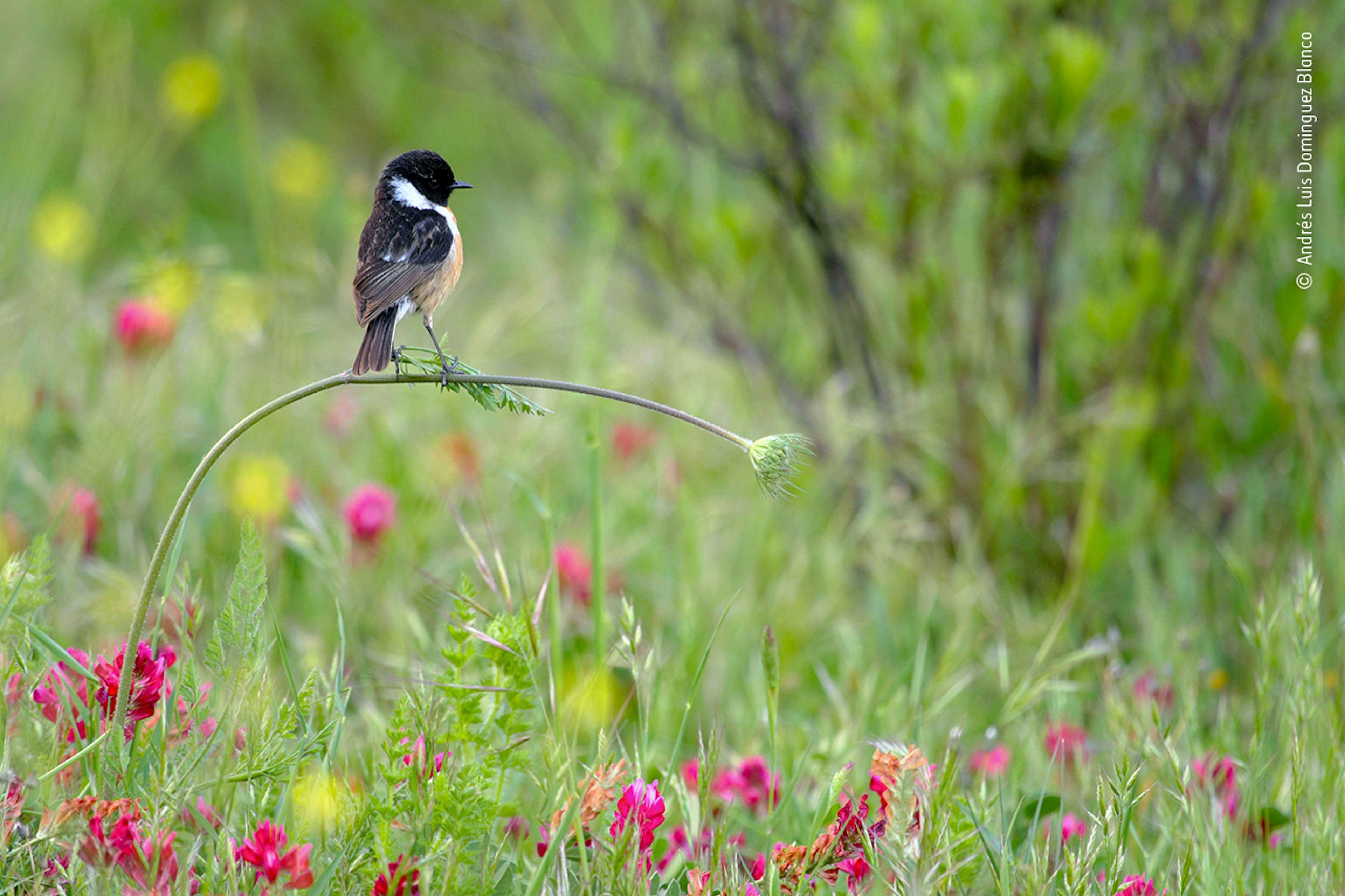
See wild beauty captured in these award-winning photos
Oct 15, 2020 • 3 min read

Sergey Gorshkov is the 2020 grand title winner for "The Embrace" © Sergey Gorshkov, Wildlife Photographer of the Year 2020
The winners of the Wildlife Photographer of the Year (WPOTY) competition have been announced during an online awards ceremony by the Duchess of Cambridge, patron of the Natural History Museum which develops and produces the competition.
This year's competition attracted 49,000 entries from around the world, and these were whittled down to 100 images "spotlighting the world's richest habitats, fascinating animal behaviours and extraordinary species." Russian photographer, Sergey Gorshkov is the 2020 grand title winner for "The Embrace," an image of an Amur tigress hugging an ancient Manchurian fir tree in the Russian Far East. It took him more than 11 months to capture the shot using hidden cameras.
"It's a scene like no other," says Rosamund Kidman Cox, chair of the judging panel. "A unique glimpse of an intimate moment deep in a magical forest." The images will be showcased in lightbox displays at the Wildlife Photographer of the Year exhibition at the Natural History Museum, and will then tour the UK and travel internationally. Photographers can submit entries for next year's competition between 19 October and 10 December 2020, and further information is available here.
Here are some of the winning images.
Winner 2020, Behaviour: Invertebrates

Frank Deschandol from France was the winner in the Behaviour: Invertebrates category, with his remarkable simultaneous framing of a red-banded sand wasp and a cuckoo wasp about to enter next-door nest holes. He set up an infrared beam that, when broken by a wasp, would trigger the superfast shutter system he had built using an old hard drive and positioned in front of the lens. Though these two species don’t regularly interact, Frank was gifted a perfectly-balanced composition by the insects’ fortuitous flight paths to their nest holes.
Winner 2020, Urban Wildlife

"Watching you watching them" won the Urban Wildlife category and was captured by biologist Alex Badyaev from Russia/US. The shot shows a female Cordilleran flycatcher pausing to check on her four nestlings outside his remote research cabin window in Montana. Alex hid his camera behind a large piece of bark on an ancient spruce tree leaning against the cabin. He directed a flash towards the trunk and operated the set-up remotely from the cabin.
Winner 2020, 10 years and under

Andrés Luis Dominguez Blanco from Spain captured the winning image of a male stonechat bird perched on a flower stem, which began to bend under its delicate weight. Andrés asked his dad to drive to the meadow where he had seen the birds, and he knelt on the back seat and shot the picture through the open windows. The stonechats were alighting on any stem or stalk as a vantage point to look for worms, spiders and insects, and when this particular bird kept perfect balance, he was able to frame his perfect composition.
Winner 2020, Earth's Environments

"Etna's river of fire" by Luciano Gaudenzio from Italy is the winner in the Earth's Environments category. He took the image in 2017, and had been on the nearby island of Stromboli to photograph eruptions there when he heard news of the new vent on Mount Etna, Europe’s largest volcano. He took the next ferry, hoping he would arrive in time to see the peak of the latest show. Luciano wanted to photograph the drama of the lava river flowing into the horizon, and did so after sunset to capture the dramatic moment.
Winner 2020, Animal Portraits

"The pose" by Mogens Trolle from Denmark won the Animal Portraits category, and depicts a young male proboscis monkey cocking his head slightly and closing his eyes as if in meditation. Mogens has been photographing primates worldwide for the past five years, and this monkey is a wild visitor to the feeding station at Labuk Bay Proboscis Monkey Sanctuary in Borneo. Found only on Borneo and nearby islands, proboscis monkeys are endangered and the most distinctive aspect of this young male is, of course, his nose.
You might also like:
Photographer spends time exploring the world’s historic underground spaces
Inside the eerie abandoned buildings of Transylvania
Explore related stories

Photography
These award-winning images show the challenges facing our natural worldOct 16, 2020 • 4 min read

 Art and CultureCopy my trip: An unforgettable family trip to Spain with Elsewhere by Lonely Planet
Art and CultureCopy my trip: An unforgettable family trip to Spain with Elsewhere by Lonely PlanetNov 19, 2024 • 4 min read
 Activities10 reasons why winter is the best time to visit the Côte d’Azur
Activities10 reasons why winter is the best time to visit the Côte d’AzurNov 19, 2024 • 9 min read


 CyclingHow to plan a biking trip to New Zealand’s Southern Lakes and Central Otago regions
CyclingHow to plan a biking trip to New Zealand’s Southern Lakes and Central Otago regionsNov 11, 2024 • 4 min read











